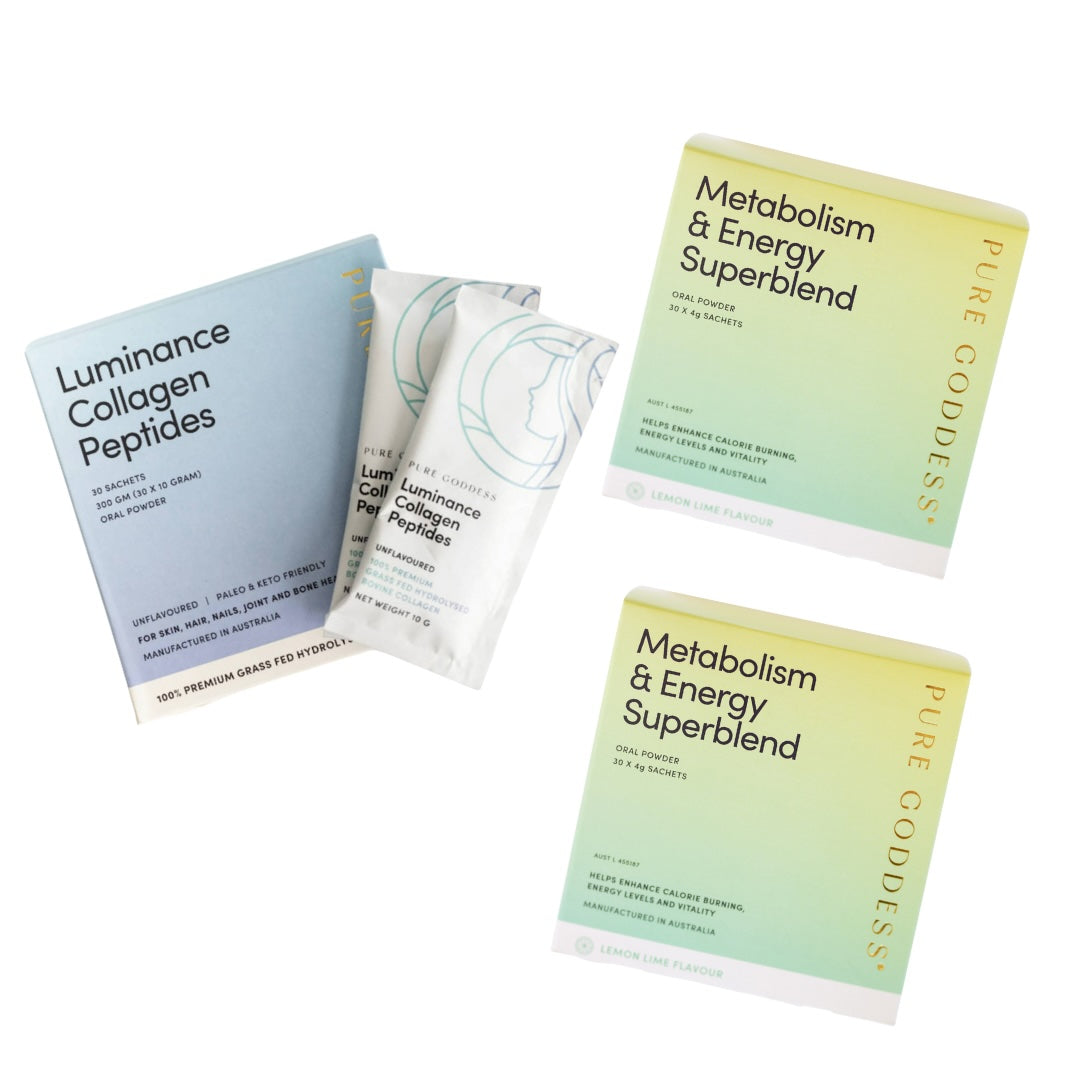
Understanding PCOS: Symptoms, Types, and Natural Remedies
Polycystic ovary syndrome (PCOS) is a hormonal condition that affects millions of women worldwide, often showing up as irregular menstrual cycles, acne, hair loss, and fertility struggles. While discovering you have PCOS can feel overwhelming, knowledge is empowering, and there’s plenty you can do to manage it naturally.
What Is PCOS?
PCOS is caused by an imbalance in reproductive hormones, often leading to the development of small cysts in the ovaries and potential complications with fertility and pregnancy. It’s estimated that 5–10% of women of childbearing age are affected, with most diagnoses occurring in their 20s or 30s.
But here’s the twist, PCOS isn’t just one-size-fits-all. It actually comes in four distinct types, each with its own triggers and solutions. Let’s dive into them.

The Four Types of PCOS (and How to Treat Them)
1. Insulin-Resistant PCOS
This is the most common type, affecting 70% of women with PCOS. It occurs when the body’s cells become resistant to insulin, leading to elevated blood sugar levels, abdominal weight gain, sugar cravings, and fatigue.
How to Manage It:
-
Focus on regular exercise (strength training and walking work wonders).
-
Eat a low-glycemic diet rich in fiber, protein, and healthy fats.
-
Prioritize stress reduction through yoga and mindfulness.
-
Add supplements like magnesium, chromium, NAC, and Metabolism & Energy Superblend to support insulin sensitivity.
2. Adrenal PCOS
This type stems from high stress levels that elevate cortisol and DHEA (stress hormones). If you’re dealing with anxiety, sleep troubles, or burnout, adrenal PCOS might be your type.
How to Manage It:
-
Prioritize stress reduction, think yoga, meditation, and breathing exercises.
-
Avoid high-intensity workouts, which may spike cortisol further.
-
Support your adrenals with nutrients like magnesium, vitamin B5, and vitamin C.
3. Inflammatory PCOS
Chronic inflammation can be both a cause and an effect of PCOS. Symptoms include headaches, fatigue, skin issues (like eczema), and high testosterone levels.
How to Manage It:
-
Remove inflammatory foods like sugar, gluten, and dairy from your diet.
-
Eat anti-inflammatory foods such as berries, leafy greens, and fatty fish.
-
Repair your gut by balancing bacteria, improving digestive enzymes, and addressing leaky gut.
-
Supplement with anti-inflammatories like turmeric, omega-3s, and antioxidants like NAC.
4. Post-Pill PCOS
This occurs after stopping oral contraceptive pills. The pill often suppresses high testosterone levels linked to PCOS, so symptoms like acne and irregular cycles may flare up after discontinuing use.
How to Manage It:
-
Be patient, this type is temporary and reversible.
-
Support recovery with good sleep, stress reduction, and gentle exercise.
-
Supplement with magnesium, vitamin E, vitamin B6, and zinc to restore hormonal balance.
Diagnosing PCOS: Digging Deeper
PCOS isn’t always obvious, which is why comprehensive testing matters.
Why it’s helpful: It can pinpoint the root causes of PCOS, whether that’s insulin resistance, adrenal issues, or inflammation. With this data, your Doctor or healthcare provider can create a personalized treatment plan that includes dietary changes, lifestyle adjustments, and supplements tailored just for you.
To find a doctor to dig this deep can sometimes be harder than it sounds, if you are not getting the answers from your current healthcare provider, get a second opinion or find an integrative GP or naturopath.
Key Lifestyle Changes for Managing PCOS
No matter which type of PCOS you have, certain habits can make a huge difference:
-
Prioritize Sleep: Poor sleep can worsen hormone imbalances and inflammation. Aim for 7–9 hours a night.
-
Stay Active, but Gently: Exercise improves insulin sensitivity and reduces stress, but avoid overtraining if stress is an issue.
-
Eat for Balance: Focus on low-glycemic foods, lean proteins, and healthy fats while cutting back on sugar and processed carbs.
-
Support Your Gut: Your gut plays a critical role in hormone regulation. Add prebiotics, probiotics, and fermented foods to keep it healthy.
-
Manage Stress: Stress isn’t just mental, it’s hormonal. Practices like meditation, journaling, and yoga can help lower cortisol levels.

Supplements to Consider
Supplements can bridge nutritional gaps and directly target PCOS symptoms. Here are my top picks:
-
Magnesium: Reduces stress, improves insulin sensitivity, and supports hormone balance.
-
Curcumin (Turmeric): Anti-inflammatory and antioxidant powerhouse.
-
Omega-3s (Krill Oil): Fights inflammation and balances hormones.
-
Vitamin B Complex: Supports energy production and adrenal health.
-
Zinc and Vitamin E: Help regulate testosterone and support skin health.
-
NAC (N-Acetylcysteine): Boosts antioxidant levels and detoxifies the liver..

Final Thoughts
PCOS can feel like an uphill battle, but with the right knowledge and tools, you can take control of your symptoms and feel empowered in your body. Whether you’re battling insulin resistance, adrenal fatigue, inflammation, or post-pill imbalances, there are natural ways to restore balance and improve fertility.
Remember, treating PCOS isn’t about quick fixes, it’s about addressing the root causes and creating sustainable habits. Start small, make manageable changes, and consider supplements like Magnesium Complex, Curcumin, and Krill Oil to support your journey.
You’ve got this, and we’re here to support you every step of the way!




Leave a comment
This site is protected by hCaptcha and the hCaptcha Privacy Policy and Terms of Service apply.